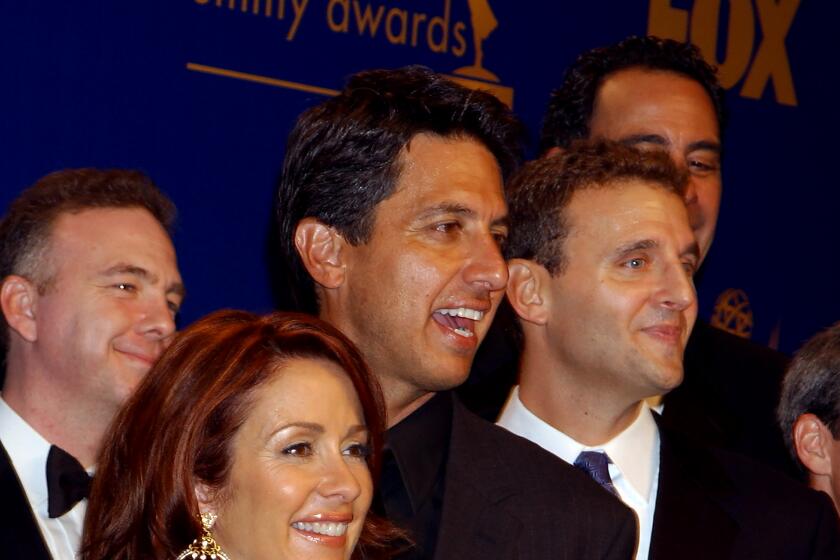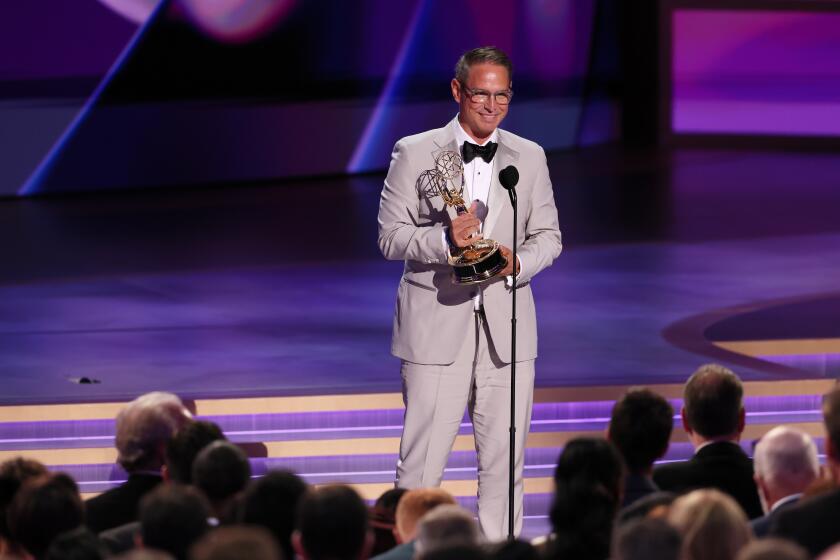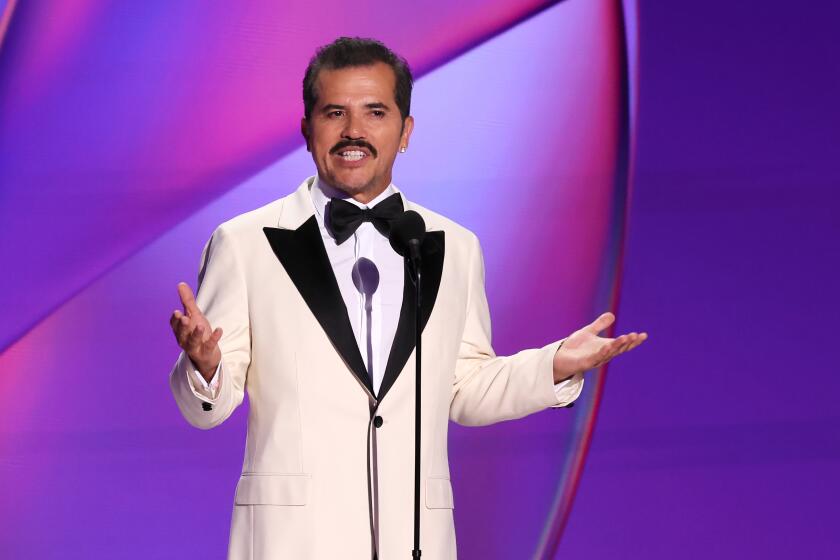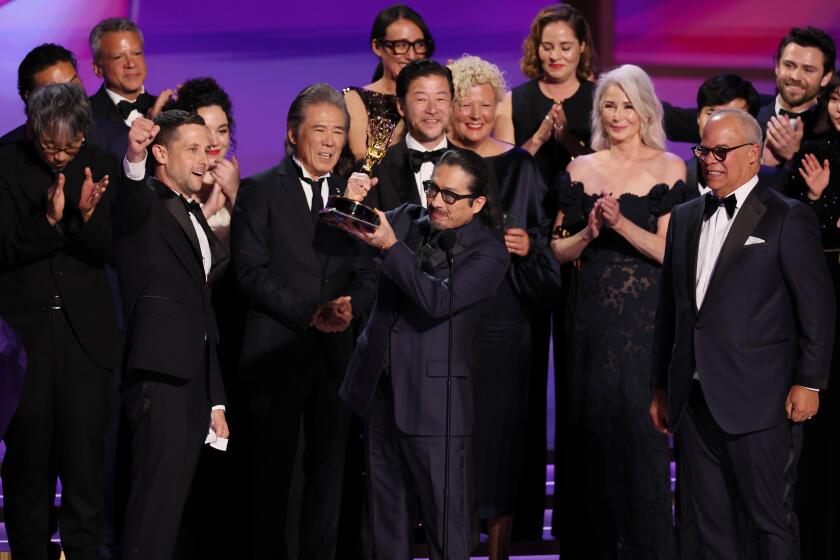20 years ago at the Emmys: HBO starts to make inroads
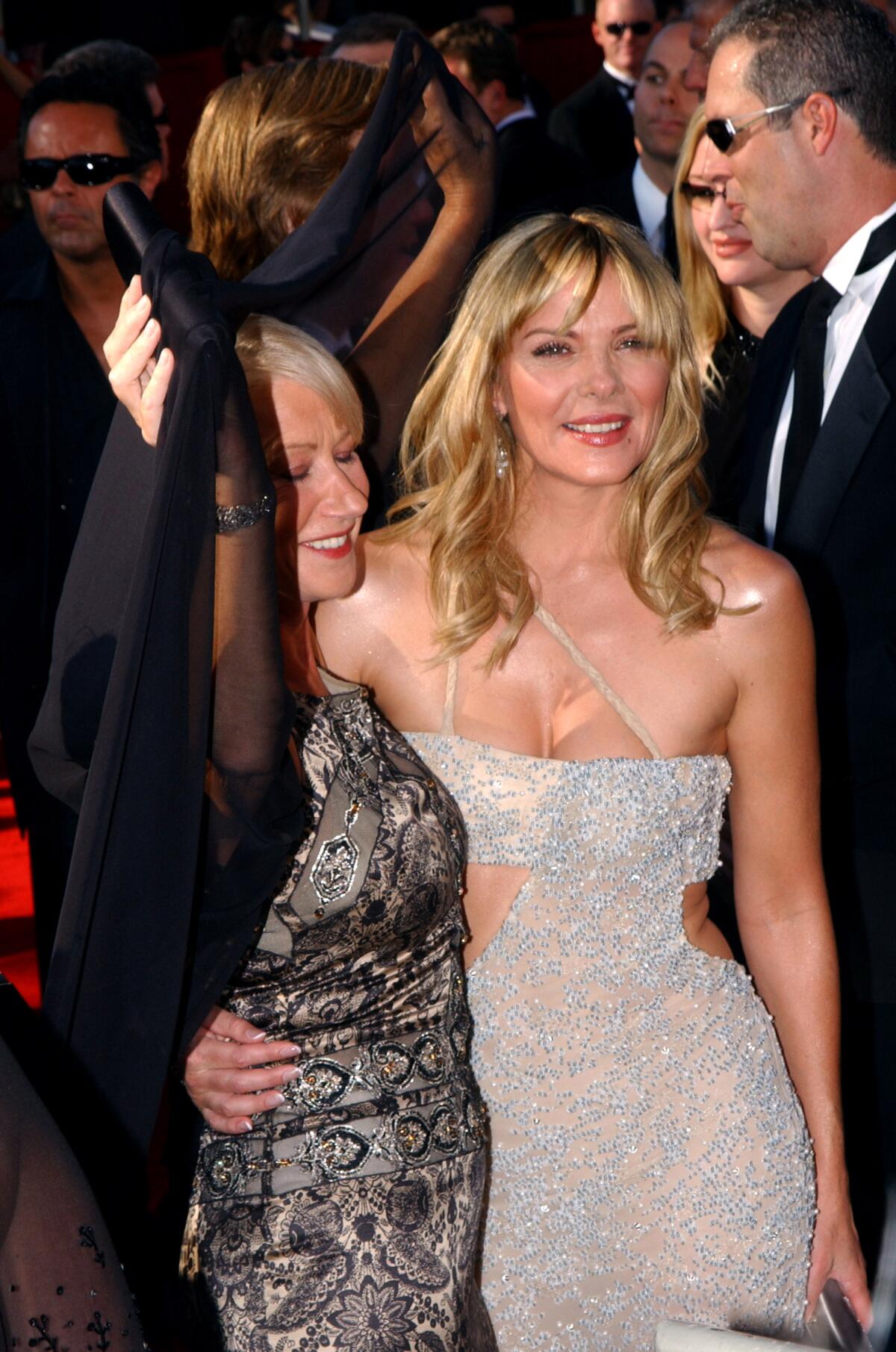
- Share via
This season’s Emmy Awards, which have pushed from their traditional September date due to the writers’ and actors’ strikes, mark a unique milestone for the ceremony — its 75th. That’s 75 years of changing television, changing platforms, changing actors, changing audience tastes. Early in Emmy history, winners came from a limited pool of choices: three, then four networks full of regular fall seasons and summer reruns. But a look back at 20 years ago shows that the foundation of what we call television was starting to crack, as original programming from cable began to make regular incursions and win awards. Today’s TV landscape is full of golden-era shows but also is fairly chaotic.
So what did it look like at the 2003 ceremony, when all three winners in the supporting actress categories were veteran performers with a raft of Emmys already on their shelves? Let’s take a look back to find out!
How times have changed. The 2003 Emmy Awards saluted Bill Cosby.
COMEDY SERIES
Three’s company: Doris Roberts picked up her third of an ultimate four wins for playing Marie Barone in “Everybody Loves Raymond” (CBS) — she’d won in 2001 and 2002, and would win again in 2005 — but got an extra prize after taking the stage to accept her Emmy: a big, extended smooch on the lips from presenter Matthew Perry. Roberts noted, “That was worth coming up here for,” then added, “I’m a triple crown winner!” It was a good night overall for supporting “Raymond” actors: Brad Garrett also won for his role.
Those left out of the winners circle included two “Sex and the City” (HBO) actors: Kim Cattrall, on her penultimate nomination for her “SATC” role as Samantha Jones (she never won); and Cynthia Nixon, who would win the following year for playing Miranda Hobbes on the show. Megan Mullally was the one to beat in this lineup — her “Will & Grace” (NBC) role of Karen Walker won her two Emmys, one in 2000 and one in 2006; and finally Cheryl Hines picked up the first of two nominations (but no wins) for playing Cheryl David on “Curb Your Enthusiasm” (HBO).
DRAMA SERIES
Judgment declared: Tyne Daly added to her roster of Emmy wins (she already had four for “Cagney & Lacey” and one for “Christy”) with a win for playing Maxine Gray in “Judging Amy” (CBS). “Well, how delightful to see you all again,” she quipped after taking the stage to accept the award.
Daly beat out “Six Feet Under” (HBO) actor Lauren Ambrose, who earned two nominations for playing Claire Fisher on the show but never won; Stockard Channing, who won for playing First Lady Abbey Bartlet on “The West Wing” (NBC) in 2002 but not again; Rachel Griffiths, Ambrose’s “Six Feet Under” co-star, who played Brenda Chenowith and earned two nominations for the role but no wins; and the one real surprise of the night: Lena Olin, earning her one and (so far) only nomination as Jennifer Garner’s underhanded mother, Irina Derevko, on “Alias” (ABC).
MINISERIES OR MOVIE
Wild hysteria: Gena Rowlands picked up a third Emmy for playing Virginia Miller in “Hysterical Blindness” (HBO), a win mirrored by her co-star Ben Gazzara, who also won in the supporting actor category. She outshone fellow three-time Emmy winner (for “Picket Fences”) Kathy Baker as Gladys in “Door to Door” (TNT); two-time winner Anne Bancroft, who played Contessa in “The Roman Spring of Mrs. Stone” (Showtime); co-star and first-time nominee Juliette Lewis, for her “Blindness” role as Beth; and eventual four-time winner (in other categories) Helen Mirren, who played Irene Porter in “Door to Door” and also was nominated in the lead actress for a miniseries or movie category for “Roman Spring” (which she did not win).
More to Read
From the Oscars to the Emmys.
Get the Envelope newsletter for exclusive awards season coverage, behind-the-scenes stories from the Envelope podcast and columnist Glenn Whipp’s must-read analysis.
You may occasionally receive promotional content from the Los Angeles Times.
